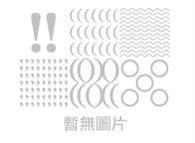
3
0
0
0
0
A history of folding in mathematics : mathematizing the margins
- 作者: Friedman, Michael, author.
- 其他作者:
- 其他題名:
- Science networks. Historical studies ;
- 出版: Cham : Springer International Publishing :Imprint: Birkhauser
- 叢書名: Science networks. Historical studies,volume 59
- 主題: Mathematics--History. , Mathematics. , History of Mathematical Sciences. , History of Science. , Geometry. , Mathematical Logic and Foundations.
- ISBN: 9783319724874 (electronic bk.) 、 9783319724867 (paper)
-
FIND@SFXID:
 CGU
CGU
- 資料類型: 電子書
- 內容註: Introduction -- From the 16th Century Onwards: Folding Polyhedra. New Epistemological Horizons? -- Prolog to the 19th Century: Accepting Folding as a Method of Inference -- The 19th Century - What Can and Cannot be (Re)presented: On Models and Kindergartens -- Towards the Axiomatization, Operationalization and Algebraization of the Fold -- The Axiomatization(s) of the Fold -- Appendix I: Margherita Beloch Piazzolla: "Alcune applicazioni del metodo del ripiegamento della carta di Sundara Row" -- Appendix II: Deleuze, Leibniz and the Unmathematical Fold -- Bibliography -- List of Figures.
- 摘要註: While it is well known that the Delian problems are impossible to solve with a straightedge and compass - for example, it is impossible to construct a segment whose length is ∛2 with these instruments - the Italian mathematician Margherita Beloch Piazzolla's discovery in 1934 that one can in fact construct a segment of length ∛2 with a single paper fold was completely ignored (till the end of the 1980s) This comes as no surprise, since with few exceptions paper folding was seldom considered as a mathematical practice, let alone as a mathematical procedure of inference or proof that could prompt novel mathematical discoveries. A few question immediately arise: Why did paper folding become a non-instrument? What caused the marginalisation of this technique? And how was the mathematical knowledge, which was nevertheless transmitted and prompted by paper folding, later treated and conceptualised? Aiming to answer these questions, this volume provides, for the first time, an extensive historical study on the history of folding in mathematics, spanning from the 16th century to the 20th century, and offers a general study on the ways mathematical knowledge is marginalised, disappears, is ignored or becomes obsolete. In doing so, it makes a valuable contribution to the field of history and philosophy of science, particularly the history and philosophy of mathematics and is highly recommended for anyone interested in these topics.
-
讀者標籤:
- 系統號: 005430301 | 機讀編目格式
館藏資訊
